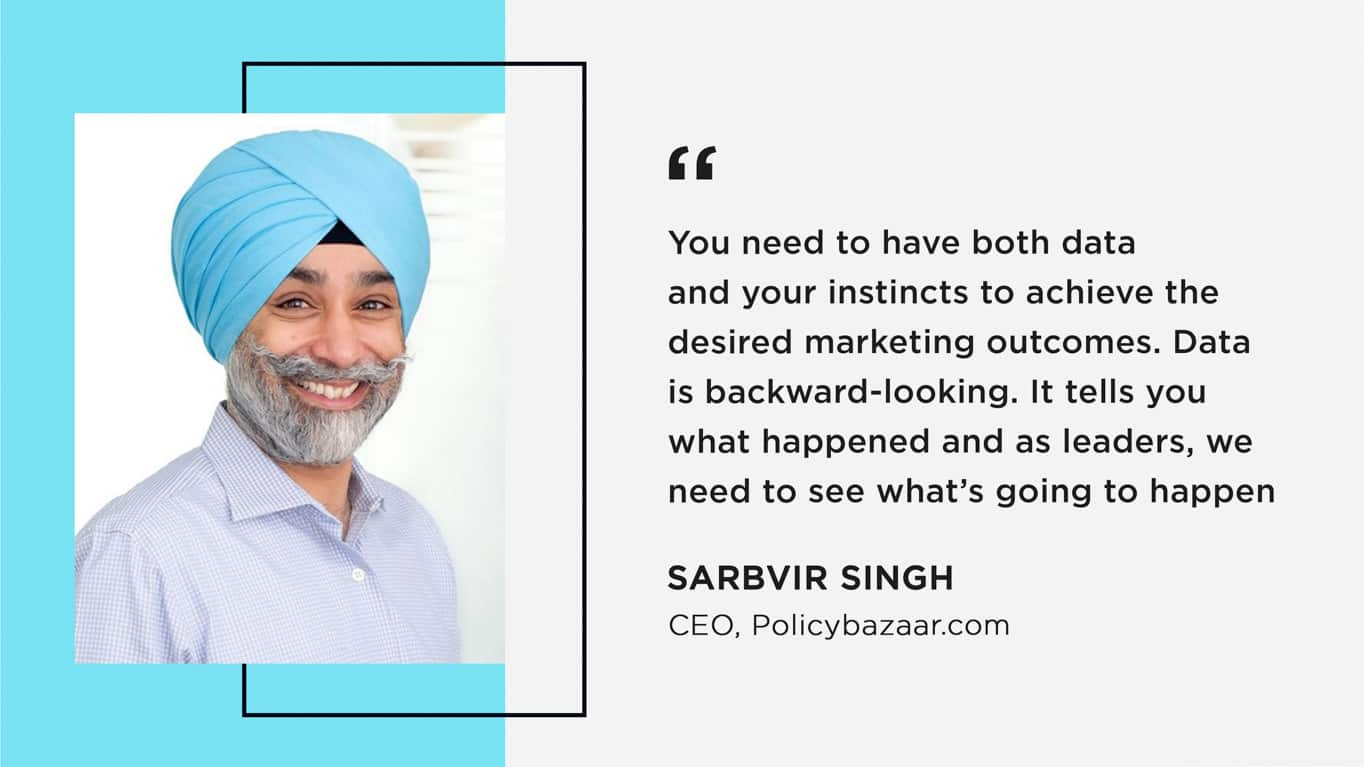1
Q3 FY24: PB Fintech posts strong numbers, PAT positive with 43% revenue growthLeader Speak
Marketing Works Best When Its Data Led But Instinct Driven: Sarbvir Singh
Marketing, at its core, is deeply rooted in understanding human desires. It is only when we know what people want, we can understand how to market to them. Along with basic psychology, interpreting data is also crucial in achieving desired marketing goals for businesses.
“The most important thing is to separate causation and correlation. The problem with data is if your core focus is on it, you can get confused between what causes something and what is a by-product of something,” Sarbvir Singh, Chief Executive Officer, Policybazaar said at The Economic Times Marketing and CX Leaders Virtual Summit 2020.
((relatedarticle_1))
The theme of the session was 'Powerful Role of CEO on Marketing Success,' which was moderated by Arjun Vishwanathan, Chief Research Officer, StrategINK.
Sarbvir said, “in our business, the amount of time our advisors talk to customers is highly correlated with the eventual outcome. The problem is that you have to figure out why the person should talk to the advisor and what did they talk about.”
((quote_1))
Singh feels marketing should have freedom and creativity in the message, but there must be a very robust measurement after that to make sure that message is working or not. This ensures that one can make corrections accordingly.
“So, you need to have both data and your instincts. Data is backward-looking. It tells you what happened and as leaders, we need to see what’s going to happen,” he adds.
CLARITY IS THE KEY
“We are focusing on the eventual outcome. Marketing is linked to the outcome. It's not a single focus only on the message. It allows the team to rally around issues. Ideas can come from anyone and seniority doesn’t play a part in our organization,” said Singh.
“We have a lot of measurements (in place) to make sure where we are going. We allow the interplay of freedom and measurement to decide the situation. For instance, we have a weekly tracker of SEO which shows how we are doing with every keyword. So, we have tried to encourage the practice on clarity on outcomes and measurement,” he added.
The session was also attended by Sanjiv Bajaj, vice chairman, and managing director, Bajaj Capital. For Bajaj, usage of data and relying on gut instincts in marketing depends on the kind of business.
He said, “we are in a different financial services business where we are dealing with a lot of products. People who are dealing with us are those who want customer services. For me, data becomes the most important component to know how I have interacted with the customer, what is keeping him happy, and what’s not, what is likely to make him happy because of the kind of options available.”
(Article edited by: Sunny Lamba)
((newsletter))














